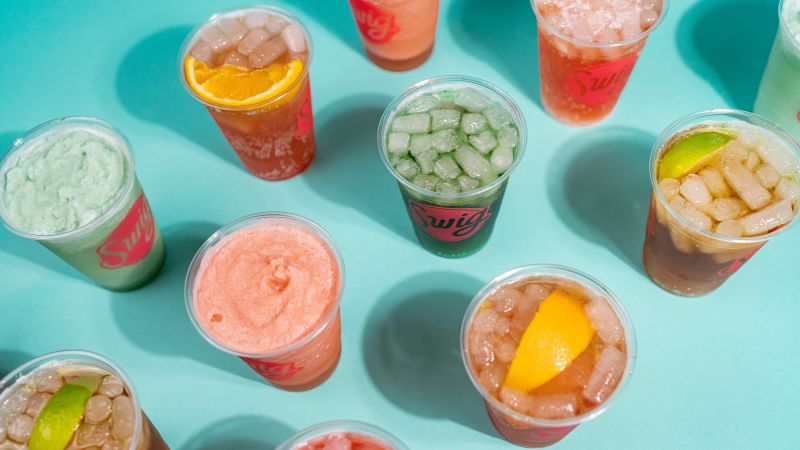Dirty sodas, a non-alcoholic drink combination of sodas with creams, flavored syrups, and fruit, have become increasingly popular in recent years, especially in the Mormon culture of the Mountain West where coffee and alcohol are prohibited. Social media, Mormon mommy influencers, and reality television shows based in Utah have contributed to the mainstream popularity of these sugary drinks. While some critics point out the high sugar content and empty calories in dirty sodas, fans argue that customization options, such as using sparkling water, can make the drinks healthier. The expansion ambitions of soda shops popularizing dirty sodas, such as Swig, are fueled by their growing popularity.
The popularity of soda shops featuring dirty sodas has expanded beyond the Mormon corridor, with Swig planning to open in 13 states by the end of the year and 1,000 new stores over the next six to seven years. Competitors like FiiZ and Sodalicious are also rapidly expanding. These shops offer a variety of ways to customize drinks, catering to the American consumer’s love for variety. With drink names like Poppin’ Pineapple and Unlucky Ducky, soda shops provide a personalized experience that appeals to consumers looking for self-expression in their beverage choices.
The American consumer’s love for variety and personalized experiences has contributed to the popularity of dirty sodas and soda shops like Swig. The shops offer an overwhelming array of choices, allowing customers to mix and match ingredients to create their perfect drink. Social media has played a significant role in the success of soda shops, with many features being organic and influencers like Nara Smith showcasing their experiences trying different drinks. The drive-through focus of these soda shops also appeals to car-dependent cities and suburbs.
Despite the rapid growth and popularity of dirty sodas and soda shops, challenges lie ahead as the trend continues to rise. Traditional players in the beverage industry may begin offering similar customizable options in their stores to compete with soda shops. Technology advancements, such as Coca-Cola’s freestyle machines, may also pose a threat to the unique appeal of soda shops. While soda shops like Swig have expanded to cities like New York City, establishing dirty sodas as a cultural staple in the Northeast may take some time due to existing coffee-centric culture and lack of drive-through locations.
Overall, the rise of dirty sodas and soda shops reflects the American consumer’s desire for indulgent treats and personalized experiences. While critics raise concerns about the health implications of high sugar content in these drinks, fans argue that customization options allow for healthier alternatives. With the continued expansion of soda shops like Swig and competitors across the country, dirty sodas are likely to remain a popular beverage choice for those seeking a unique and customizable drink experience.













